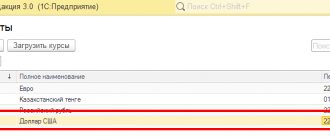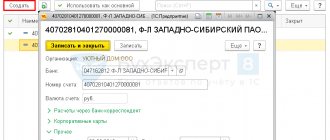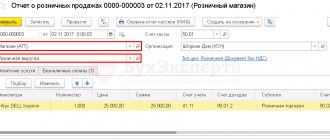Legal encyclopedia of SIE online - » Tax law » Payment of taxes and fees » Suspension of transactions on bank accounts and electronic funds transfers of organizations and individual entrepreneurs
Get an expert’s opinion on bank accounts and electronic funds transfers of organizations and individual entrepreneurs in two clicks
After freezing an account, an organization or individual entrepreneur cannot carry out any operations to reduce the amount in the account.
Situations in which operations are suspended
The suspension of any payment transactions, including electronic ones, means freezing the account of an organization or individual entrepreneur, as a result of which the use of this account becomes impossible.
It is noteworthy that you can top up your account; this suspension does not affect this in any way in some cases. Electronic funds that an organization or individual entrepreneur has, or rather, settlement transactions on them, can also be suspended, while only expense transactions are stopped; it is still possible to replenish the account with electronic funds.
According to the current tax legislation, there are three situations in which transactions on accounts (it should be understood that they are also electronic) can be suspended:
- failure to provide a completed tax return;
- the organization did not provide a receipt to the tax authority within the framework of current legislation;
- in pursuance of the decision made by the tax authority.
It is noteworthy that in the first case, operations are suspended temporarily: exactly until the payer provides the tax authority with a correctly completed and valid tax return.
According to the provisions of Article 76 of the Tax Code, suspension of transactions does not in any way affect expenditure transactions associated with the next payment of insurance contributions, social contributions, payments, as well as taxes and fees, whose turn for payment to the state budget came earlier than what was received on execution of the decision of the tax authority to the bank.
In addition, it is impossible to freeze those transactions on accounts that relate to electoral or special (should be understood as a referendum fund). All other electronic spending transactions are suspended subject to appropriate decision.
Article 23 of the Tax Code spells out the responsibilities of payers, including organizations. Thus, according to the norms of paragraph 5, the organization is obliged to accept from the tax authority documents on which calculations are made and tax returns are filled out, and then send a receipt notifying the receipt of the documents.
If such a receipt was not sent, then the organization cannot fill out the tax return correctly, and, therefore, falls under Article 76 of the Tax Code. The suspension of debit transactions on accounts, including electronic ones, is used as a preventive measure.
What are the most common reasons for blocking?
The most common reasons for blocking an account at the initiative of the bank:
- Suspicion of transit of funds. For example, money came to the account of an entrepreneur, and he transferred it to the account of his spouse, who paid for the goods by card. A supporting document can be a receipt, which shows the purpose of the expenditure.
- Cashing out amounts. For example, an individual entrepreneur kept a savings account in a bank, which he regularly replenished with cash, and then decided to open a deposit in another bank. When cashing out funds, the bank may block it until the circumstances are clarified. To remove the blocking, an agreement to open a deposit account with more attractive conditions can help.
- Receipt of different amounts from a large number of counterparties. You can remove the bank's suspicions if you show contracts with all partners.
Accounts of individuals are blocked much less often than legal entities. But no one can completely guarantee that there will be no suspension of operations.
Banks very often play it safe and freeze any transactions that seem dubious to them. Therefore, if you are traveling abroad and will use a bank card there, and you have never left Russia before, it is better to warn your bank. Employees of a financial institution may suspect fraud after making a payment in the Virgin Islands or Thailand. As a result, you will be left without money when you urgently need it.
For more information about why transactions on an individual’s card can be blocked and how to avoid this, read this article by Brobank.
Grounds for suspending all expense transactions
One of the grounds for suspending expense transactions of an organization or individual entrepreneur is a tax return not completed on time.
Thus, after the completion period expires, a legal entity or individual entrepreneur is given another 10 calendar days to submit a declaration to the tax authority. If this has not been done, then the tax authority has the right to ask the bank to suspend all expense transactions, except those that are extraordinary.
This interim measure is specified in paragraph 3 of Article 76 of the Tax Code. In addition, if an organization or individual entrepreneur has not received or confirmed the fact of receiving from the tax authority all the documents necessary to fill out the declaration, then these documents are considered not accepted, and the declaration is not completed or filled out incorrectly.
This, in turn, also leads to the application of the provisions of Article 76 of the Tax Code. Namely, the suspension of any expenditure transactions.
Tax authorities send documentation to ensure that all items of the declaration are filled out correctly and reliably.
That is why payer organizations and individual entrepreneurs are required to notify the tax authorities of receipt of documents. Moreover, they can request clarifications and clarifications, which are provided by the tax authorities.
The most common grounds for suspending all expenditure transactions on the accounts of organizations or individual entrepreneurs are decisions of tax authorities aimed at paying arrears, paying taxes and fees, as well as fines and penalties to the state budget.
In this case, before a decision is made, a demand is sent to the payer-debtor, which specifies the terms and conditions for repayment of the debt. If this does not happen, then the head (or the person who performs his functions and powers) of the tax authority makes a decision to collect the missing funds by suspending operations on the account.
The measure is of an interim nature, allowing the state budget to be replenished exactly by the amount due from a specific payer, but no more.
Recommendations for protecting your accounts from blocking
To protect your bank accounts from blocking, follow the rules for organizing cash flow. All payments must be justified, and all counterparties must be verified clients.
Follow a few tips to help protect your accounts from being blocked:
- Please indicate the truthful and complete purpose of the payment. State in payment orders: what you are paying for - for goods or services; under which contract – number and date of conclusion; indicate the payment option - with or without VAT. Warn counterparties to also provide full information in their payment orders.
- Check counterparties through the electronic system of the Federal Tax Service before signing contracts.
- Work only in officially registered activities. Don't try to hide from the attention of the tax service.
- Withdraw cash only when necessary for a strictly limited amount. Make the majority of payments by bank transfer.
- Submit supporting documents requested by the bank as soon as possible. Do not shy away from communicating with bank employees or from personal meetings with its representatives to clarify unclear situations.
- Pay taxes and contributions for yourself and your employees on time. Carry out the operation from the account through which all others are processed. Do not split accounts into different types of activities in an attempt to reduce the tax base.
- Inform the bank about changes in constituent documents or changes in address or telephone number.
These recommendations will reduce the likelihood of account freezing, although they will not eliminate it completely.
Another way to protect all your money from being frozen is to open an additional account at another bank. When blocked, money can be transferred to another bank, albeit with a huge commission. Please remember that banks exchange information about questionable transactions with other organizations. You can open an account in a small bank, as they can be more loyal to attract customers. But in this case, there is a risk of losing money as a result of the revocation of the license by the Central Bank.
The most reliable way to protect your accounts from blocking is not to conduct questionable transactions or participate in suspicious schemes.
Conditions for suspension
Suspension of transactions on taxpayer accounts can be carried out either for one account or for several. Moreover, if there are enough funds to pay off the debt in one account, then the payer has the right to submit an application to the tax authority to suspend the effect of its decision to freeze more than one account.
The tax authority is obliged to consider this application within two working days and make a decision on it. So, for example, if a payer organization has two accounts, the amount of funds in which together is sufficient to pay the debt, then the bank is obliged to transfer the debt in favor of the state budget.
The balance remains in the payer's accounts. And the organization has the right to submit an application to cancel the suspension of account transactions. At the same time, the organization cannot make claims to the bank, since the bank fulfills its duties within the framework of current legislation.
If the funds in the account or accounts of the payer-debtor are not enough to repay the debt to the state budget, then the tax authority has the right to continue suspending expenditure transactions for a certain period.
If within one calendar month the amount in the account or accounts has not reached the amount necessary to pay the debt, preventive measures are already applied to the payer in the form of a fine, seizure of property or criminal prosecution at the discretion of the court to which the tax authority sends the application.
Responsibilities of the bank
According to current legislation, the bank does not have the right to ignore a decision received from the tax authorities. Moreover, tax legislation provides for immediate execution of the received decision. That is, the decision is considered to have entered into force on the day it is received by the bank (no later than the next day after it is made).
The bank does not have the right to open new current accounts for debtors (should be understood as individual entrepreneurs and legal entities). Moreover, the bank is obliged to suspend settlement operations on the same day as it received the decision from the tax authority that made the decision, and the transfer of funds to the state budget from the debtors’ accounts - no later than the next business day. In addition, the bank is obliged to notify the tax authority about how much funds remain in the debtor’s account as of a specific date.
Tax legislation provides that the bank is not liable for losses incurred by organizations or individual entrepreneurs whose account transactions have been suspended during the write-off of funds to repay debts on taxes, fees, fines, and penalties. Making claims against the bank on these issues is inappropriate and illegal.
Decisions to suspend transactions on taxpayer accounts by a bank cannot be ignored - this is a violation of the law, and therefore must be executed, even at a loss to clients.
If the tax authority has decided to cancel its first decision (should be understood as canceling the freezing of accounts), then a copy of this cancellation is sent to the bank, which in turn, no later than the next business day, executes and restores debit transactions on the accounts of organizations or individual entrepreneurs.
How the account owner is notified of blocking
The law does not regulate how financial institutions can inform a client that his account has been blocked. Banks themselves develop a system by which they notify account holders.
For example, a client may be informed that his account has been blocked:
- SMS to the phone number of the account owner or the head of the legal entity;
- by message in your personal online banking account or through the “Client-Bank” system, if we are talking about accounts of a legal entity;
- by calling the account holder.
Any method of notifying the client is considered legal.
Decisions to set aside decisions
Such decisions are made by the same tax authority that decided to suspend transactions on accounts. At the same time, there is an established procedure for cancellation:
- if the payer fails to submit a declaration - within a working day after receiving the completed declaration;
- in case of failure to fulfill obligations to notify the tax authority - within a working day after notification of receipt of documentation;
- in the absence of electronic communication with the tax authority - within a working day after communication is established.
The decision to cancel is transferred to the bank no later than one business day for execution. At the same time, the bank cannot ignore the decision and implements it in a timely manner - no later than the next day.
The payer-debtor is notified that his obligation to pay the debt has been fulfilled, if there was a debt, or has not been fulfilled, and the case is referred to the court for consideration.
The form of the decision to cancel, as well as the form of the decision to suspend transactions on accounts, has an approved form, is filled out in electronic format and submitted to the bank, as well as to the payer for review and execution. In paper format, filling out is not provided.
The form is under the control of the executive federal authority, which is authorized to control the implementation of tax legislation.






